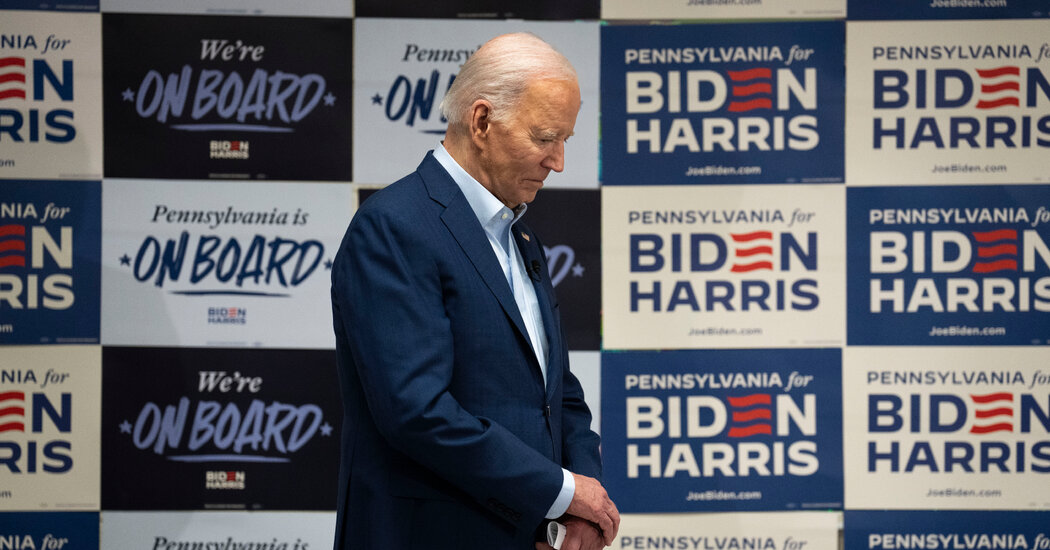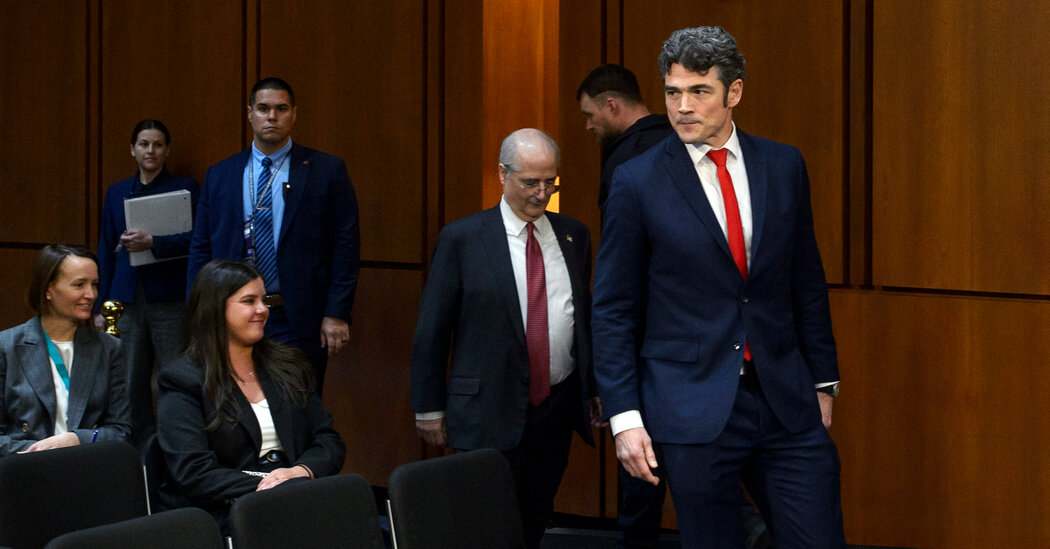SEATTLE — Microsoft said on Tuesday it planned to buy the powerhouse but troubled video game company Activision Blizzard for nearly $70 billion, betting that video games will become an increasingly central part of people’s digital lives.
The blockbuster acquisition, the largest ever by Microsoft and for the gaming world, would catapult the company into a leading spot in a $175 billion industry that is successful on virtually every kind of device, from bulky gaming consoles to mobile phones, and has reached even greater heights during the pandemic. Technology companies are swarming around the industry, looking for a bigger share of attention and money from the world’s three billion gamers.
In an industry driven by blockbuster franchises, Activision makes some of the most popular titles, including Call of Duty and Candy Crush. Yet the company has been roiled by employee revolt over accusations of sexual harassment and discrimination in recent months.
The deal may also strengthen the company’s hand in the so-called metaverse, the nascent world of virtual and augmented reality. The metaverse is more of a buzzword than a thriving business now, but it has attracted huge amounts of investment and talent. Facebook renamed its parent company to Meta late last year to underscore its commitment.
Phil Spencer, the chief executive of Microsoft’s gaming business, said that whatever the metaverse may end up being, “gaming will be at the forefront of making that mainstream.” For now, he said, the acquisition was about gaining a stronghold in mobile gaming, where Microsoft barely competes, and a studio that produces blockbuster games. He called Call of Duty “one of the amazing entertainment franchises on the planet.”
Federal regulators may raise concerns about the acquisition, as Democrats and Republicans alike have pushed to limit the power of technology giants. Microsoft is valued at more than $2.3 trillion, second only to Apple.
The industry has been consolidating rapidly as it spends heavily on technology. The takeover of Activision would make Microsoft the world’s third-largest gaming company by revenue, behind Tencent and Sony, the company said. Microsoft now makes Xbox consoles and owns studios that produce hits like Minecraft.
One main driver of deals, and one that could grab the attention of regulators, is the arms race for exclusive content. After locking up well-known franchises like Call of Duty, Microsoft can decide whether to make those games exclusive to their platforms, meaning fans of those games would be forced to switch from Sony’s PlayStation console to Microsoft’s rival Xbox system.
When asked whether Activision games would become exclusive to Xbox, Mr. Spencer would say only that “our goal is to allow the content to reach as many players as possible.”
Microsoft has been hunting for ways to spend its immense cash reserve, more than $130 billion, to expand its consumer business, having looked at acquiring the booming social network TikTok and popular chat app Discord.
In Activision, which faces accusations that senior executives ignored sexual harassment and discrimination, Microsoft found a target under stress. The allegations have weighed on Activision, with its shares falling 27 percent since California sued the company in July over the matter.
The game maker’s shares opened up nearly 30 percent in trading on Tuesday. Microsoft’s shares fell by 2 percent.
The transaction may be seen as a victory for Bobby Kotick, Activision’s longtime chief executive, whom some critics had sought to force out over the controversy. Mr. Kotick negotiated a big premium for investors — Microsoft is paying $95 a share, roughly 45 percent above his company’s stock price before the announcement, though only slightly more than the trading price before the scandal broke.
Mr. Kotick declined to say if he would remain chief executive after the deal closes, when the studio would report to Mr. Spencer.
“Post close I will be available as needed to ensure that we have the very best integration,” Mr. Kotick said.
The controversy at Activision began last summer, when a California employment agency sued the company over accusations of fostering a toxic workplace culture in which women were routinely sexually harassed and discriminated against. In the ensuing months, employees staged protests, launched social media campaigns and called for executives to resign.
Some top leaders at Activision did leave, including J. Allen Brack, the head of the Blizzard Entertainment subsidiary, and the company pledged $250 million toward increasing employee diversity and said it would strengthen anti-harassment policies. But when The Wall Street Journal reported in November that Mr. Kotick had known for years about accusations of harassment against employees and in some cases had not taken action, calls for his resignation only increased.
Doing a deal with Activision is something of an about-face for Microsoft, which as recently as November was questioning the company’s culture. In an email to Xbox employees reported by Bloomberg and confirmed by the company, Mr. Spencer wrote in November that he was “disturbed and deeply troubled by the horrific events and actions” at Activision. On Tuesday, he was appearing alongside Mr. Kotick to praise the deal, and Mr. Kotick said that he felt the two companies “have similar values and think about our cultures similarly.”
Mr. Spencer said Microsoft “sat down with Bobby and the team and looked at the plan that they have in place,” adding that company culture is always a work in progress. “We are very supportive of the progress that he and the team are making.”
Current and former Activision employees who have been leading the efforts to get the company to reform its culture did not think the purchase was likely to prompt change in the short term, especially because the sale may face a long review from regulators.
The deal could take 12 to 18 months to close, Mr. Spencer said.
“We will continue to fight for improvement and stress proper employee representation,” said Jessica Gonzalez, a former Activision employee and one of the organizers of the ABetterABK activist movement, adding, “this doesn’t change anything.”
Game companies, which have been flush with cash since the pandemic increased the industry’s profits, have been consolidating rapidly. The previous record for the biggest merger in the game industry was set just last week, when Take-Two Interactive, the creator of games like Grand Theft Auto, announced plans to buy the mobile game publisher Zynga for more than $11 billion.
Last year, Electronic Arts and Take-Two engaged in a bidding war over Codemasters, a racing game company — eventually selling to EA for $1.2 billion — and Microsoft made another splashy purchase in 2020 when it purchased Zenimax Media and its slate of gaming studios for $7.5 billion.
Activision itself was the product of serial deal-making by Mr. Kotick over decades, rolling up smaller game studios. It took shape in its current form when Activision — then known primarily for producing titles for traditional gaming consoles — agreed to combine with the gaming unit of France’s Vivendi to expand into multiplayer online games like World of Warcraft.
Activision later bought King, the European gaming company behind Candy Crush, to expand into mobile games.
Mr. Kotick characterized the deal as a calculation that Activision did not have the tools to keep up with big tech companies like Google, Apple, Amazon and Tencent in the rapidly evolving gaming landscape.
“We realized it was going to be an increasingly competitive world with resources that we just didn’t have,” he said.
Microsoft, despite owning the Xbox gaming console and the studios behind Minecraft and Halo, has remained largely focused on corporate users for software like Office 365 and especially Azure, its cloud-computing business that competes with the likes of Amazon and Google.
Activision’s gaming efforts are facing headwinds, with its most recent Call of Duty release panned by gamers and delays among titles like Diablo and Overwatch, which have seen key directors leave in recent months after the company’s series of scandals. Still, Activision remains quite profitable, reporting $639 million in net income in its most recent quarterly earnings report.


